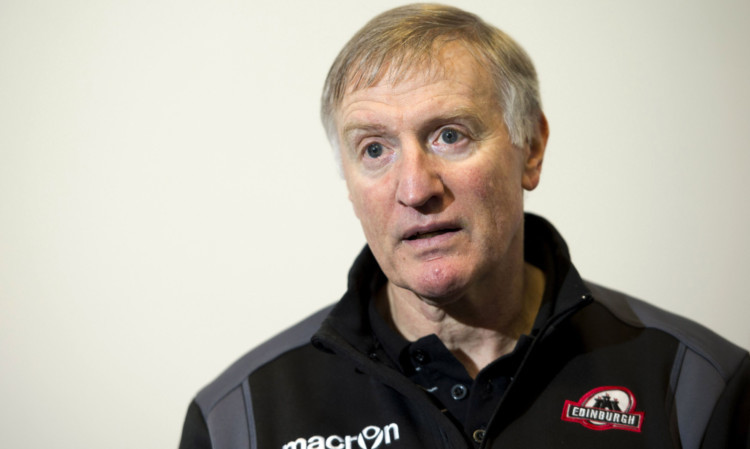Scottish rugby has long been sinking in the quicksand of professionalism.
Once in a while a rope will be dangled. There will be the odd Calcutta Cup win at Murrayfield when the weather takes on end-of-the-world proportions, or an autumn international victory over an under strength South Africa or Australia.
And in club land Glasgow have recently become proficient at holding their own in the RaboDirect PRO12, and Edinburgh, as they showed on Saturday evening, can sometimes raise their game for the Heineken Cup.
Then there’s the rare (very rare) emergence of a player who is bordering on world class.
Those ropes have never been within reach though. They have just served to tease, as the game continues to suffocate in the post-amateur era.
There are two established ways in which rugby union can thrive in the northern hemisphere.
The French and English way where clubs are robust enough to prosper on their terms, without governing body support or interference. The head coach does his own thing, and the national team benefits from the competition for places that club independence engenders.
Or there’s the Irish way where the governing body/club umbilical cord is still very much intact and their elite players in the four provincial teams have central contracts. The benefit of this model is the national coach has an input on when and where his players take the field, the theory (and often the reality) being that they are in better physical condition for internationals than their opposite numbers.
The unwritten ethos behind the latter it is that the greater good is the success of the national team. Mind you, the Irish provinces haven’t exactly done too badly out of it either.
The infighting Welsh would do well to follow their blueprint. Up until the last couple of months it looked like Scotland were already, but now I’m not so sure.
The strategy at the SRU appears to have got confused.
I would be interested to know if Edinburgh head coach Alan Solomons disclosed his intentions to swamp his squad with imports (13 since he arrived at the last count I believe six of them uncapped South Africans) at his Murrayfield job interview. If he didn’t, then somebody needs to have a word in his ear, and if he did, then the SRU have backed the wrong man and the wrong ideology.
Solomons, who showed no appetite for a change of policy when he defended the flurry of foreigners at his Friday press conference, may sort things out at Edinburgh.
But Scotland will suffer because of an inevitable lack of opportunity in certain positions for home players.
Some have argued that Solomons striking out on his own as none of his predecessors at Edinburgh have done, or his counterparts at Glasgow is a good thing.
It’s about time there was a bit of autonomy at the top at Edinburgh, it is claimed.
That would be all well and good if this was a self-funded club. It isn’t. Millions of pounds of SRU money gets fed there per year.
And parallels have also been drawn with Solomons’ approach at Ulster.
But comparing the Ulster of 2001 with the Edinburgh of 2014 misses the mark.
Ireland had two equally strong (some would argue stronger) provinces as Ulster at the time and didn’t rely on Solomons for the national squad talent pool. Leinster and Munster were quite capable of sharing that particular burden.
Scotland has just two pro teams and to get competition for places Scott Johnson, and Vern Cotter after him, will need Scots playing regularly for both Glasgow and Edinburgh, and plenty of them.
If Solomons’ southern hemisphere Elastoplast for Edinburgh works, do you think he will stop there? I don’t. This will be a coalface he keeps chiselling away at. The temptation reinforced by results like the weekend defeat of Perpignan – will be too great not to.
There is no magical middle way of mixing the Irish and English systems for our pro teams, where they take the best bits (the cash) and ignore their responsibility (exposing local talent to top level rugby).
Solomons has talked about a four year process to ingrain an academy structure that will become the principal supply of players for the Edinburgh first team. But he won’t be accountable in four years. He’ll be off.
There have already been murmurings among the Edinburgh faithful about the make-up of their squad, and a couple more years of this strategy will make them a rugby union version of the Scottish Claymores American football outfit, filled with passing-through incomers and the odd token Scot.
A South African coach clogging up his Edinburgh team with South African journeymen is not a rope being dangled above the quicksand for Scottish rugby union.
It’s a boot on top of the head.
